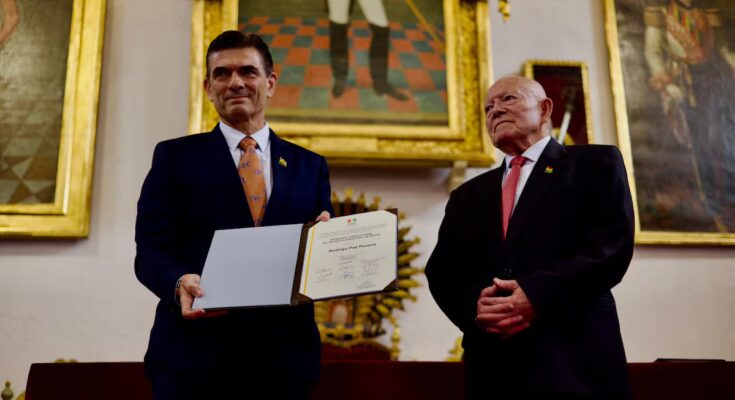When Rodrigo Paz takes over as president of Bolivia this Saturday, he will inherit urgent challenges. The country’s economic crisis may be its most pressing, but its government’s legacy may depend on its ability to reverse decades of regression in democratic and judicial institutions.
Paz, of the Christian Democratic Party, a centrist party, and so far a senator, will inherit a judicial system plagued by corruption and delays, and often subservient to power. Evo Morales, president from 2006 to 2019, and Jeanine Áñez, interim president from 2019 to 2020, used the courts to persecute their political opponents.
Paz’s immediate predecessor, Luis Arce, failed to break this pattern despite his initial promises. Arce recognized that justice was a “debt” his party owed to Bolivians and created a commission of experts to prepare proposals for an independent justice system. However, his promises never materialized.
Today, Bolivia has, in many ways, one of the weakest, least independent and functional justice systems in Latin America. The World Justice Project’s 2025 Rule of Law Index, which examines corruption and the effectiveness of justice systems, ranked the country 131st out of 143 assessed globally in 2025, above only Venezuela and Nicaragua in the Latin America region.
The first signs of peace were encouraging. His election platform calls for judicial reform aimed at strengthening judicial institutions and the establishment of a reform commission with international support.
In media interviews, Paz has said that his government will not interfere in the work of judges and prosecutors and that it will seek to ensure equality for all before justice, regardless of who is involved and what their political leanings are. After winning the October 19 election, Paz promised he would hold a “justice summit” in Sucre to discuss justice system reforms.
However, the challenges are enormous. The 2009 Constitution states that high court magistrates and the Judicial Council, the body that appoints and dismisses judges, must be elected by popular vote from lists drawn up by Congress, which for the past two decades has been controlled by Evo Morales’s Movement Toward Socialism (MAS). This process, which apparently democratizes the judicial system, in practice facilitated its co-optation by the Government.
In 2010, Morales signed a law ending the mandates of judges appointed before the 2009 Constitution took effect and retroactively declaring them temporary. The Judicial Council dismissed dozens of judges without giving any reasons and appointed new judges in cases accused of irregularities.
More recently, Congress failed to draw up lists of new members of the Constitutional Court after the Court itself paralyzed the selection process. As a result, judges elected in 2017 to six-year terms remained in office despite their terms expiring in 2023. Most of them decided to extend their terms. Bolivians now call them “self-prorogated” magistrates. The president of the Supreme Court of Justice, another high court in Bolivia, has publicly questioned the legality of their mandate.
In an ideal scenario, President Paz and Congress should replace the system of electing judges by popular vote, which does not guarantee the independence of the judiciary. However, in the absence of constitutional reform that transforms the system as a whole, they should pass legislation to create a selection committee that uses transparent, merit-based criteria to guide Congress’ decision in pre-selecting candidates.
The aim should be to ensure that appointed judges have a fixed tenure, with clear rules for appointments, transfers, promotions and dismissals based on merit. This would help protect judges and prosecutors from political influence and control, so they can make their decisions based solely on the facts of the case and the law.
Paz’s presidency in Bolivia marks a political turning point for the country. But only an effective and independent judicial system can guarantee a solid and stable rule of law.



